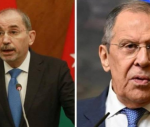You are here
Rev. Jackson’s role in Arab American empowerment
Apr 25,2023 - Last updated at Apr 25,2023
Forty years ago, at an Arab American dinner event with Rev. Jesse Jackson, he leaned over and said to me, “I’m running for president and I want you to join my campaign staff.’ I responded, ‘I’ve spent the last four years organising my community. I’m not sure I can give it up right now.’ His reply was direct: ‘We’ll do more for your community in the next four months than you’ve been able to in the last four years.”
While Arab Americans had been successful in building coalitions with Black, Latino, and US peace organisations in defence of justice for Palestinians, our path to political empowerment had been blocked, principally by pro-Israel groups who saw us as a threat.
Political candidates who held Arab American fundraising events, when challenged for taking “Arab money”, returned the contributions. Some campaigns were pressured to fire Arab American staff persons, and candidates and some political coalitions and parties rejected our endorsements and involvement.
I took the position as a Jackson 84 deputy campaign manager. As the first-ever major presidential campaign to welcome Arab Americans by name, Jackson’s 1984 campaign generated tremendous excitement in the community. Rallies were huge and enthusiastic. And the fundraising was significant.
I remember speaking with Jackson just before California’s primary contest. After a multi-city campaign swing that featured Arab American events in each location, Jackson said: “I think your community has crossed the threshold of acceptance. Until recently after every fundraiser, the press would report Jackson raises Arab money. But after the last few, there were no stories at all. It was just another fundraiser.”
We elected four Arab American delegates to the 1984 San Francisco convention, and I was tapped to deliver one of the speeches putting Jackson’s name in nomination. Honoured to be the first Arab American to speak at a convention, I used the opportunity to discuss the history, diversity and contributions of my community.
Months later, a small group of us launched the Arab American Institute to build on the lessons learned during the 1984 campaign. We focused our work on voter registration, voter mobilisation, supporting Arab American candidates and bringing Arab American concerns into the political arena.
By 1988, when Jackson ran a second time, our progress was already evident. We elected 55 delegates to that year’s convention, passed resolutions supporting a balanced US policy recognising Palestinian rights in 10 states, included planks on Lebanon and condemning bias against Arabs and Arab Americans in the Democratic Party platform, and held the first-ever national debate on Palestinian rights from the convention podium.
In the decades since, we have seen an even more profound transformation in our community’s empowerment and political capacity to make change. Cities where we were once shunned or ignored have elected Arab American mayors. With hundreds elected to local, state, and federal posts, Arab Americans now see public service as a career. Challenges because of their ethnicity are almost always rejected out of hand.
Political empowerment opens other doors. When you’re weak, others can define you and cause you to be shunned. But as you gain strength and respect, you can define yourself. As a result, Arab Americans now play a leading role in civil rights, multi-ethnic, and peace and justice coalitions that once rejected us. Likewise, our input is now sought in how to portray Arabs in media and how to teach about Arab history and culture.
Challenges remain, but our progress has been crowned this year with the president’s issuance of a first-ever formal proclamation of Arab American Heritage Month. Events will celebrate the 80 Arab Americans serving in this administration, an evening celebrating Arab culture, and a White House-hosted policy forum with Arab American leaders.
Without exaggeration, the path to Arab American political empowerment began with Rev. Jackson’s improbable but momentous 1984 presidential campaign. His slogan that year was: “Our time has come.” Interpreted by some as primarily directed at Black Americans, Arab Americans embraced it as their own call to empowerment. Four decades later, in communities across the country, a new generation is building on the progress that has been made, still growing and prospering, and making it clear that our time is now.
The writer is president of the Washington-based Arab American Institute











